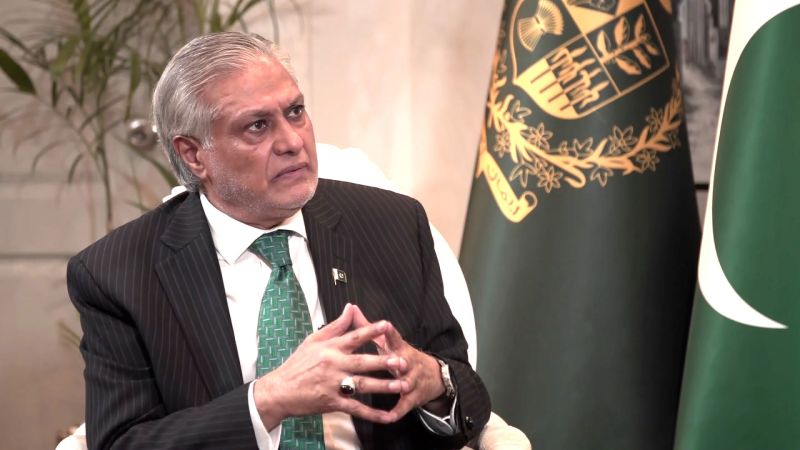In his first interview since India and Pakistan agreed to a ceasefire Saturday, Dar said Islamabad “had no choice” but to launch strikes in “self-defense” following India’s May 7 cross-border attacks.
Last week’s escalatory tit-for-tat strikes marked the worst fighting between the two nuclear-armed nations since 1971, killing dozens and deepening fears of a wider conflict.
Dar referred to India’s strikes as a “war” and a “wishful attempt to establish its hegemony” in the long-disputed Kashmir region – but said that the nuclear option was never on the table.
“There are certain times when you have to take very serious decisions,” he said, “We were very sure that our conventional capacity and capabilities are strong enough that we will beat them both in air and on ground.”
Following several days of fighting, Islamabad and New Delhi agreed to a US-brokered truce on Saturday, as explosions reportedly ripped through parts of Kashmir over one final burst of strikes.
“We still hope sense will prevail,” he said.
Meanwhile, Indian Prime Minister Narendra Modi said on Monday that India has “only paused our responsive attack on Pakistan’s terror and military hubs.”
“Operation Sindoor has drawn a new line under the fight against terrorism – this is a new phase, a new normal,” he said, adding, “If there is a terror attack on India, we will give a jaw-breaking response.”
“India will not tolerate any nuclear blackmail,” Modi cautioned.
The Indian leader asserted the ferocity of his country’s attacks pushed Pakistan to look for “ways to save themselves” by reaching a ceasefire deal.
“They were calling the world to reduce tensions after being completely destroyed,” he said.
“(The Indians) had seen what happened in the sky,” he added. “They could see how serious the damage was.”
There was no direct contact between Indian or Pakistani officials, Dar said, contradicting a previous assertion made by India’s director general of military operations, who reportedly received a message from his counterpart in Pakistan during the talks.
Instead, Dar said that US Secretary of State Marco Rubio passed on the message that India was ready to stop the fighting.
Rubio said in a Saturday statement that he and US Vice President JD Vance had spoken to the political and military leadership in India and Pakistan to secure agreement before the situation deteriorated further.
Calls for ‘self-determination’ in Kashmir
The Muslim-majority region of Kashmir has been a flashpoint in India-Pakistan relations since both countries gained their independence from Britain in 1947.
The two nations to emerge from the bloody partition of British India – Hindu-majority India and Muslim-majority Pakistan – both claim Kashmir in full and, months after becoming independent, fought their first of three wars over the territory.
The divided region is now one of the most militarized places in the world.
Dar pointed to Kashmir as “the root cause of this regional instability” and called for the region’s “future self-determination.”
India has long accused Pakistan of harboring militant groups in Kashmir that conduct attacks across the border against Indian security forces, a charge Islamabad has rejected.
India launched its cross-border strikes last week in the wake of a tourist massacre in the Indian administered part of Kashmir in April.
Dar reiterated that Pakistan was not behind last month’s rampage, saying, “We condemn terrorism in all forms and all manifestations.”
He added that he believes US President Donald Trump supports Pakistan’s antiterrorism efforts.
“If they didn’t believe (in our efforts), they would not have cooperated the way (that they did),” Dar said, pointing to Trump’s social media post on “finding a solution” to the Kashmir conflict.
However, Dar warned that the already precarious ceasefire could be threatened “if the [Kashmir] water issue is not resolved” in the coming talks, referring to ongoing disputes of access to water from rivers in Kashmir. Pakistan’s proposed solution involves reversing India’s decision to block three vast Kashmir rivers vital to Pakistan’s economy.
Failure to resolve the water issue “will amount to an act of war,” he said.
